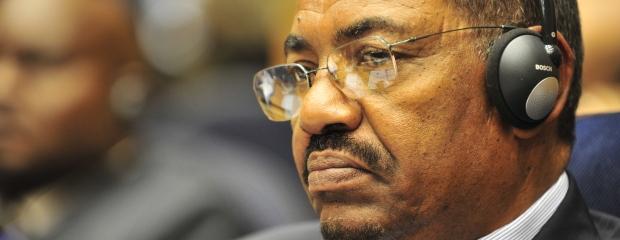From Clash of Civilizations to Interdependence
Among the many issues which are being discussed in the aftermath of Southern Sudan’s self-determination referendum, the “domino effect” which could be triggered in Africa and the rest of the world is one of the most worrisome. Analysts and journalists have warned that from Western Sahara to Nepal, from Zanzibar to Mindanao, secessionist movements and guerrillas could draw further strength from the success of the Sudan People’s Liberation Movement/Army (SPLM/A).
As a matter of fact, the eventuality of a secessionist wave seems unlikely if we consider the situation with a more balanced attitude: fears of a domino effect have been a constant during similar events in the past, but the independences of Eritrea, Timor-Leste and Kosovo have not shaken the world as they were expected to do. The simultaneous combination between a weak government(1) and a strong secessionist movement, which seems to be the condition for a successful struggle for self-determination, does not seem to be present in any of the hotspots mentioned above neither in other “secession-risk” areas.
But even though the political developments currently taking place in Sudan will not replicate themselves per se in other situations, the political discourse which is arising at the élite as well as popular levels to make sense or justify the secession of the South may have deeper and more lasting consequences. While being the result of a long history of abuses and oppression consolidated by political marginalization, economic exploitation and war, the partition of Sudan is being pictured as the result and the proof of the impossibility to live together between Southerners and Northerners, and, at a more elementary level of identity, between Africans and Arabs, which become reified “us” and “them”. Especially in the North, extremist political factions such as al-Tayeb Mustafa’s Forum for a Just Peace are gaining ground with their populist rhetoric, and the temptation for mainstream politicians to follow them is strong.
At the popular level, this kind of reasoning is spreading mostly among the young people, with all the paradoxes that this implies, being them the generation who experimented more than anyone else the reality of living together and mixing cultures, at least in the capital. Two days ago, a showcase for young Sudanese artists attracted hundreds of boys and girls of mixed origins, to watch and listen to young performers – themselves coming from all the regions of the country – singing Western and Sudanese pop hits, reading poems and dancing break-dance. Many young people of Southern descent have been grown up learning Arabic at school, and they are now “returning” to a land they have never seen, while their President speaks English, a language they don’t understand.
Of course, the Sudanese one is an history of a difficult coexistence, marred by mutual mistrust, racism and violence. Southerners are fleeing Khartoum following the dream to build their own, new Sudan, but also out of fear of what could happen after secession. But there’s an heritage of everyday interaction in educational institutions, workplaces, markets and neighborhoods which cannot be erased by identity politics, whose main instrument is a selective memory which emphasizes what divides and scale down what unites.
Everywhere in the world politicians have resort to identity politics to fill the gap between politics and society, but this has always proved to be a very dangerous strategy. The logic of the clash of civilizations – in this case, the Arab and the African ones – offers a simplified understanding of political conflicts but dangerously raises the stakes of the game. The relations between North and Sub-Saharan Africa will undoubtedly suffer from the spread of such a discourse, and a potentially disruptive fault line could open in the Sahel belt, where countries like Chad or Niger present demographic and socio-cultural conditions similar to the Sudanese one.
This is one of the reasons why the nature of the future relations between Northern and Southern Sudan will have a deep impact beyond the boundaries of the two future states. Of course nobody is so naí¯ve to ask a couple who’s divorcing to leave for a honeymoon, but it is reasonable to think that a relation of positive proximity and cooperation could be established, maybe after transitional phase of “cold interaction”. Eventually, it may prove to be easier for Northern and Southern Sudanese to find a way to live together as good neighbors than as roommates. Once the partition will take place, there will be no more “centre” and “periphery”, no more “government” and “rebels” (not even former-rebels), no more “oppressors” and “oppressed”, no more “perpetrators” and “victims”. There will be two sovereign states, dialoguing – if willing – on a peer-to-peer basis and – willing or not – bound by an objective relation of interdependence which encompasses economic as well as socio-cultural factors, from oil to pastures, from language to local trade.
It is this very interdependence which may offer the sparkle for future conflict as well become the catalyst for a stable peace. Post-referendum negotiations are essentially an attempt to find a viable way to manage this relation of interdependence in a positive way.
But for this to happen, the tones have to be scaled down, inflammatory rhetoric has to be extinguished and the temptation to resort to identity politics must be abandoned.
Giorgio Musso is currently Assistant Professor of African History at the University of Genova (Italy).
(1) We mean here simply a government which is not able to exercise an uncontested authority on the whole territory it administers.





